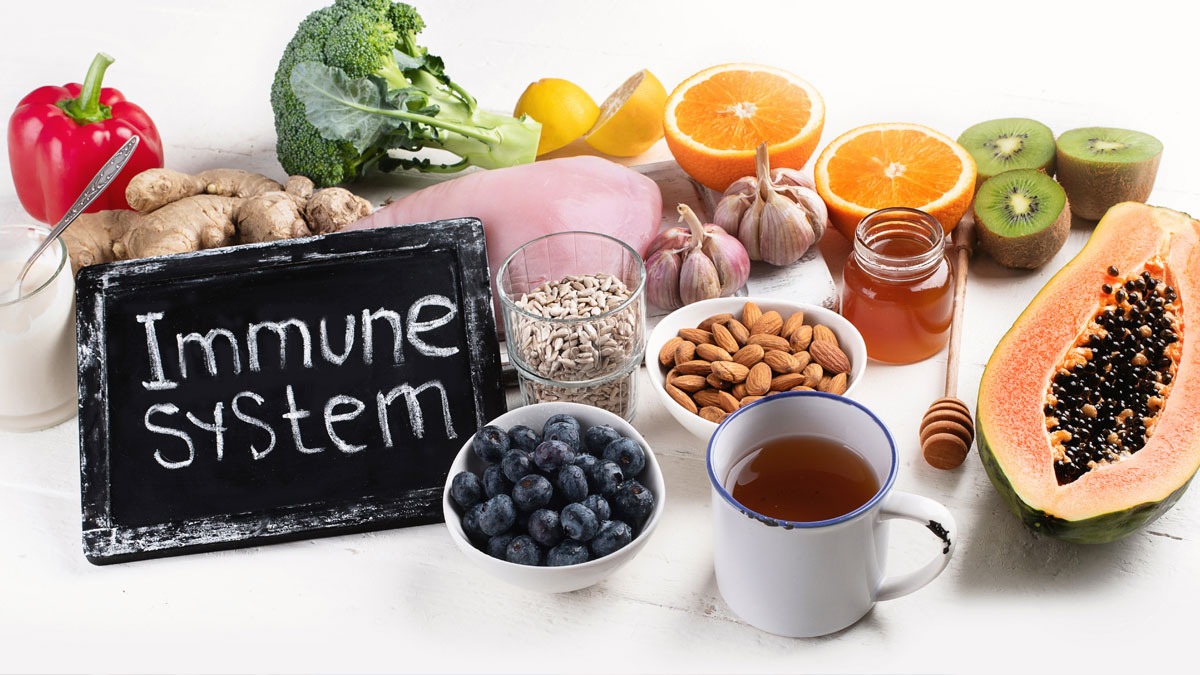With the rise of the COVID-19 pandemic, people are more concerned about staying healthy than ever before. We’ve all heard how important it is to wear masks, wash hands and keep our distance from others to help slow the spread, but have you wondered if there’s anything else you can do to help your chances of warding off this potentially deadly virus?
Can you strengthen your immune system?
“A balanced diet leads to a balanced immune system,” said Jeannie Boyer, a registered dietitian who practices at East Cooper Medical Group, noting that we should be striving for a balanced, high-functioning immune system, not one that’s functioning at a higher level.
It won’t come as a surprise to anyone that staying healthy overall is one of the best ways to support your immune system. Eating whole foods that aren’t processed and living a healthy lifestyle are the best things you can do to stay healthy.
“We know that poorly nourished individuals are at a greater risk for and severity of infections,” said Jalak Patel, a registered dietitian who practices at Bon Secours St. Francis in Greenville. “Our innate immune system is a specialized network that protects our body from infection. This network has an ‘army’ of cells that rely on nutrient rich foods to function well and to destroy harmful microbes that attack our body.”
There are certain foods that might be better at supporting immune function than others, said Boyer. In particular, foods that are anti-inflammatory and high in fiber are good choices. Beans, carrots, peppers, broccoli, cauliflower, cucumbers, tomatoes, berries, melon, peaches and avocados all qualify.
“These foods give us some of the nutrients that play a role in immunity: Vitamin C, beta carotene, fiber, zinc and protein,” Boyer said. “Summer foods make this so much easier and tastier.”
Patel agreed: “A balanced, minimally processed meal pattern, one that includes primarily fruits, vegetables, whole grains, legumes, fish high in omega 3 fatty acid, lean meats, nuts and seeds and water while remaining low in added sugars will support the healthy immune system.”
Another factor is a person’s gut microbiota (the microbes that live in our digestive track).
“Because there are varied components of the immune system, keeping it healthy means eating an array of foods that are nutrient dense to support all parts of this system,” Patel added.
Of course, the key to improving your health as a whole through your diet is consistency. It’s not enough to just eat a few anti-inflammatory foods every now and then if the rest of your diet is poor. To make the biggest difference, you’ll want to eat fresh fruits and vegetables daily.
On the other hand, red meats and foods that are sugary, processed and fried can have a negative impact on how well the immune system functions.
“Studies have shown that refined sugars can suppress the immune system for hours after ingesting it,” Patel said. “Excess amounts of saturated and trans fats, from fried foods and snacks, processed and high-fat cuts of meat and cheeses can also lead to inflammation in the body.”
It’s not that you can’t enjoy these foods every now and then. Just eat them occasionally as a treat instead of making them a main staple of your daily diet.
Diet is just one part of supporting immunity and good health, Patel said. Excess stress can suppress the immune system, too.
“Chronic stress can lead to poor eating habits and undernutrition,” she concluded. “The stress response to staying at home and limiting social connections may lead to overeating or decrease in appetite. Take time to focus on decreasing stress by finding joyful moments in your day.”
By Erica Rodefer Winters
